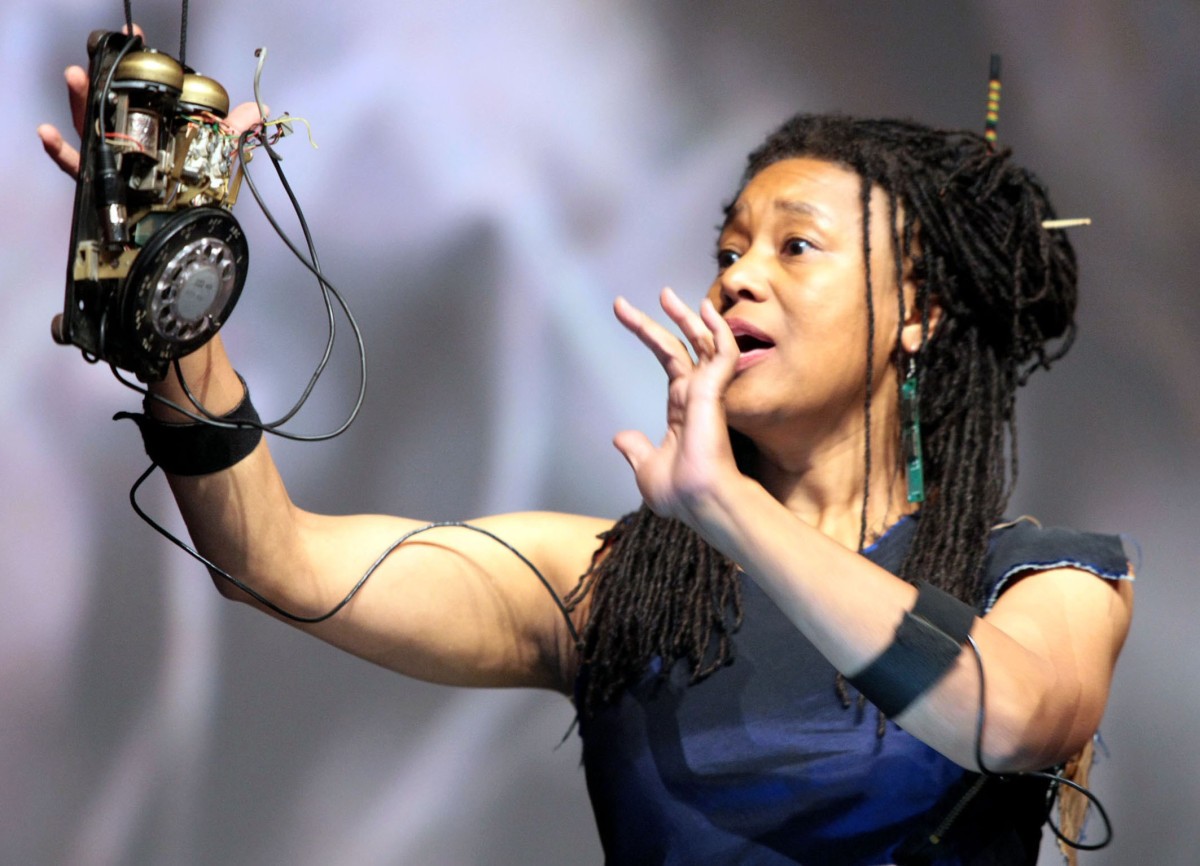Teaching Spotlight
Embedded Computing for Music at Case Western Reserve University
In this post we’ll give an overview of the Embedded Computing for Music course which takes place at Case Western Reserve University in Cleveland, Ohio, U.S.A.
Embedded Computing for Music
Course Overview
The Embedded Computing for Music course started this year and is focused on designing digital musical instruments typically used for the performance and composition of electronic music. The class of ten students, primarily from electrical and computer science disciplines, worked with a Bela Mini board and a handful of different sensors in conjunction with the graphical programming language Pure Data.

The goal was for the students to learn about digital music instrument and interface design alongside some of the fundamental signal processing algorithms which can process sound in real-time. This course used some of the course materials available on the Bela knowledge base to get the students up to speed with the technology.
Teaching Hardware Remotely
Due to the ongoing Covid-19 pandemic this course was taught completely in remote. All of the students were issued with a hardware kit to use at home to design their own digital musical instruments and learn about sound synthesis.
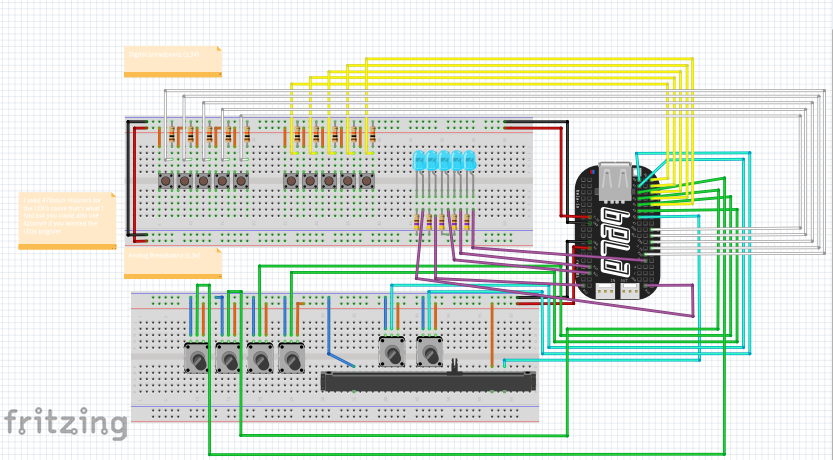
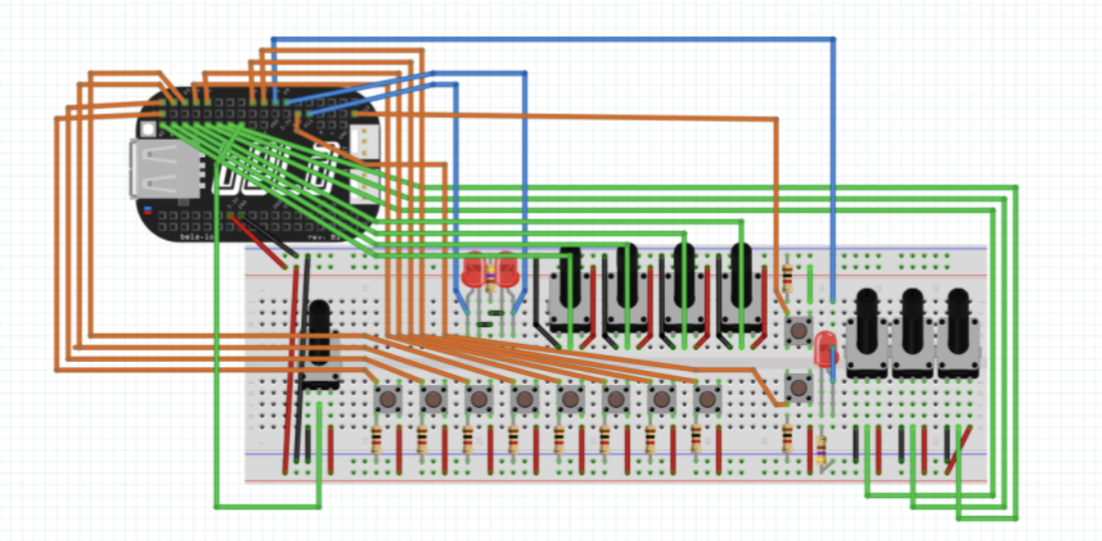
Some of the schematics used during the class showing how to connect Bela to various sensors.
The kit included a Bela Mini Starter Kit, a breadboard, and components including buttons, potentiometers, force sensitive resistors, piezo discs, velostat and LEDs.
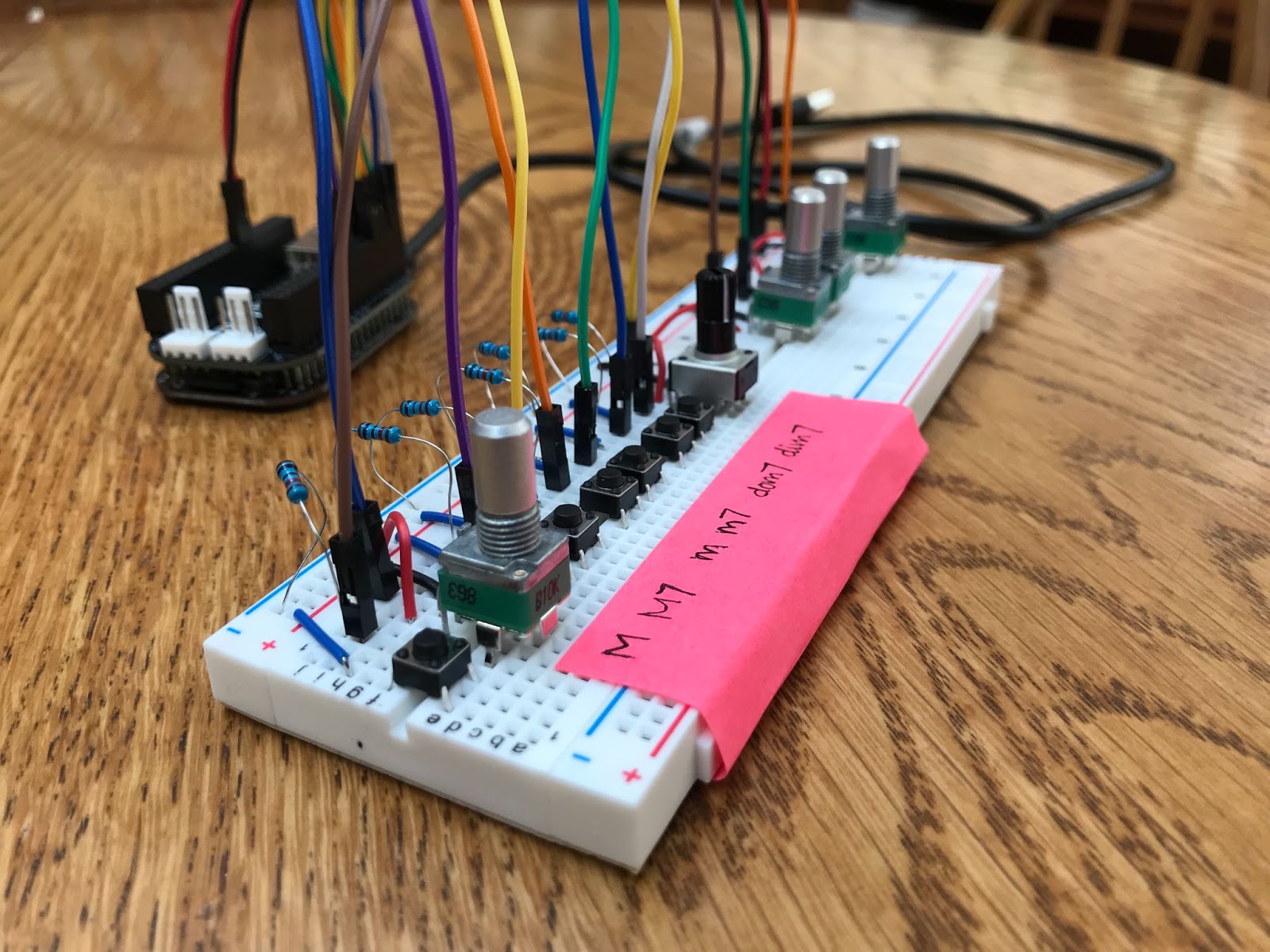
Andrew and Robert – Bela
As part of the course students pitched their proposed projects to two of the inventors of Bela. The Bela team were formed in the Augmented Instruments Lab at Queen Mary University in London, UK. The students presented their instrument designs to Drs Andrew McPherson and Robert Jack who gave feedback on the students’ designs.
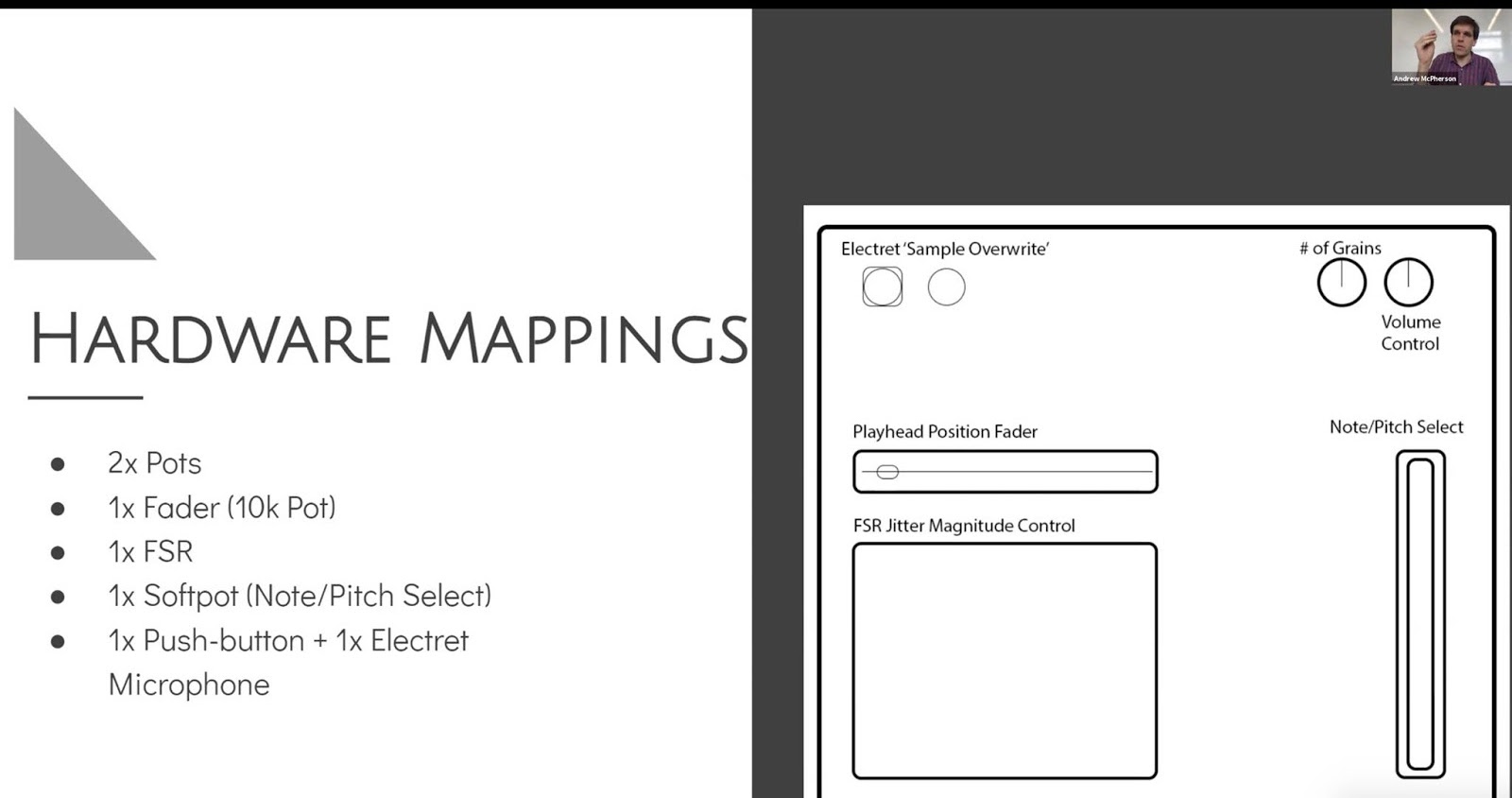
Miller Puckette – Pure Data
Additionally, the students received a guest lecture from the inventor of Pure Data himself, Dr Miller Puckette, a PhD in Math from Harvard, an alum of MIT and the current Associate Director of the Center for Research in Computing and the Arts at UCSD.
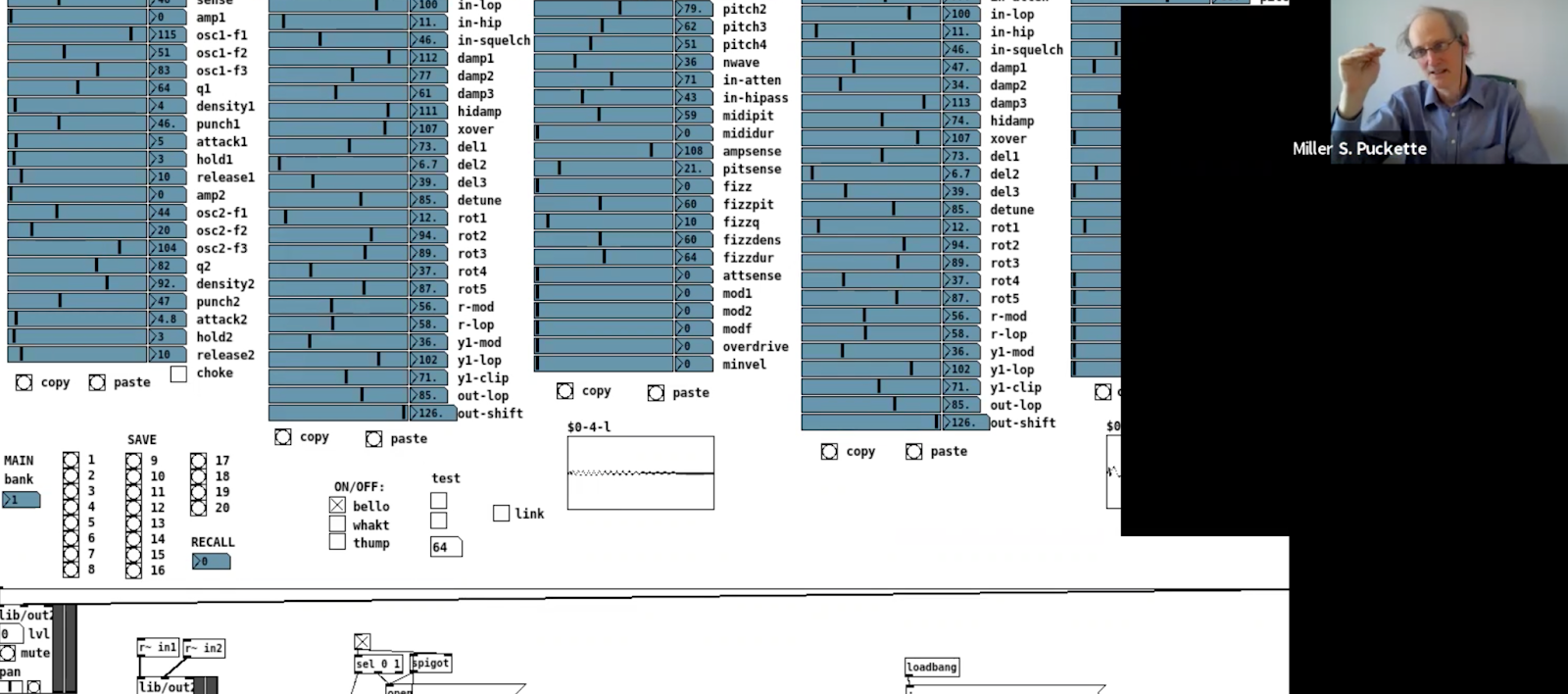
Kelly Snook – MiMu and NASA
The students also received a session from Dr Kelly Snook, a NASA Research Scientist, Aerospace and Astronautics PhD from Stanford, Professor, and MiMu engineer for the performing musical artists, Imogen Heap and Ariana Grande.
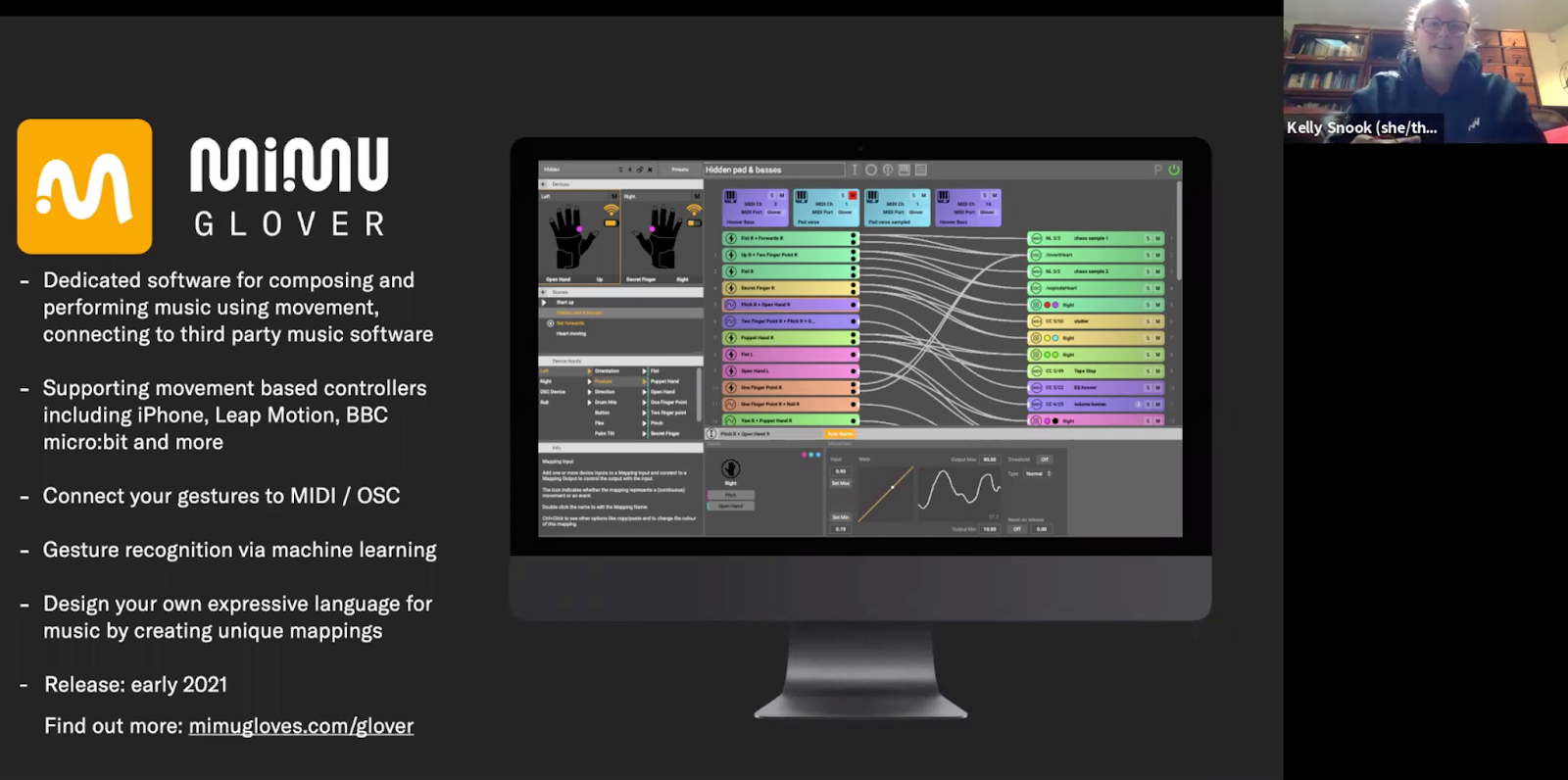
Course Outcomes
The quality of projects was extremely high from this group of students which is particularly admirable since the course was taught exclusively online. Marie took a more conventional path for her first project and developed a chord builder instrument based on her background as a jazz pianist whereas Mark went for a full blown feedback synthesiser.
The final projects for the course include real-time pitch transposition tools for vocalists, drum machines and granular processors for field recordings and binaural audio.
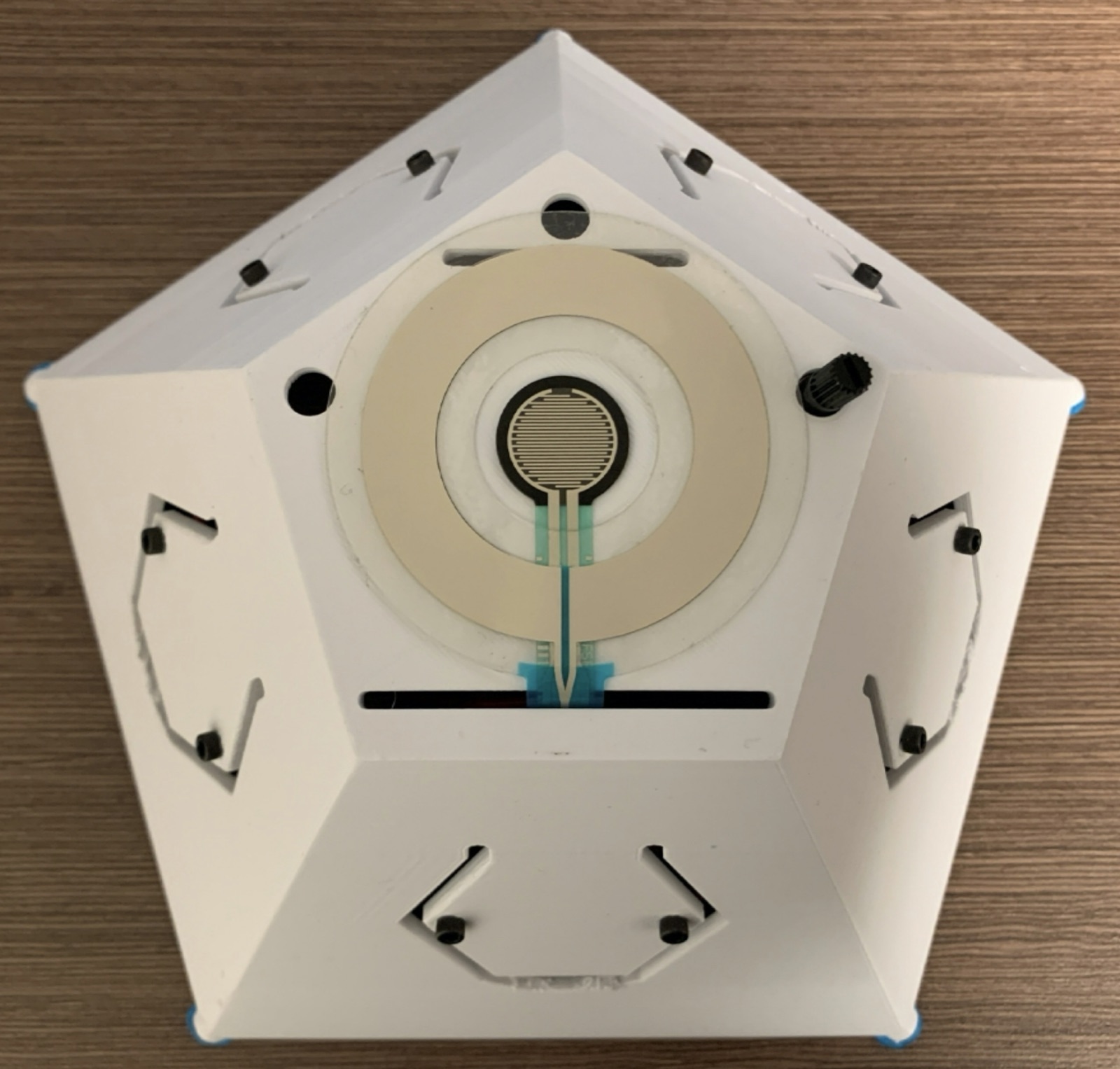
Pebble by Mark which can be seen in action in the above video.
About Richard Graham
Embedded Computing for Music was taught by Dr Richard Graham who holds a PhD from Ulster University in the UK where he researched performance systems design, musical memory and auditory scene analysis under Dr Brian Bridges and Professor Frank Lyons. The Spring 2021 students were Colb, Marie, Laura, Michael (Conor), Evan, Brian, Ben, Mark, Anthony and Gavin.


